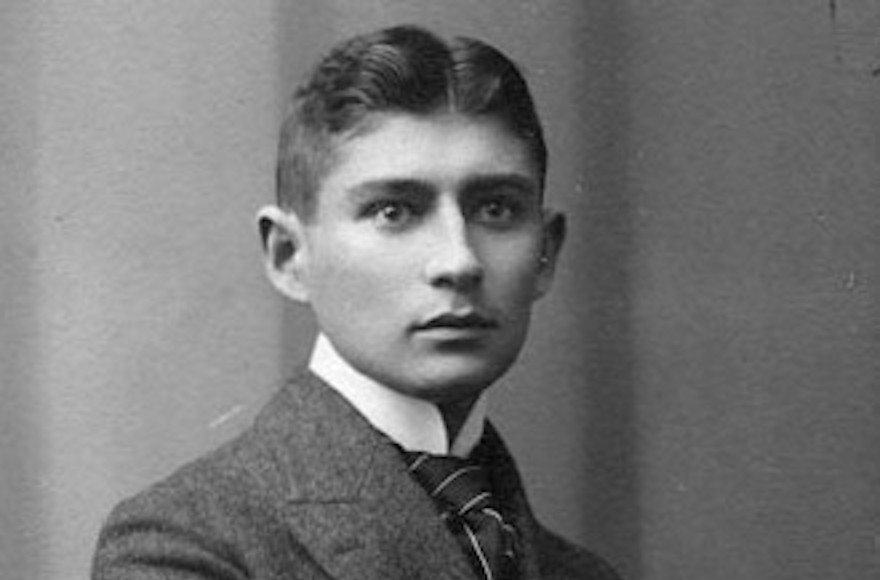It’s an absurdity that Franz Kafka himself would appreciate.
Some 1,500 people recently crowded into New York’s Town Hall for an evening devoted to a new translation of an unfinished novel that its author, now dead, had asked not be published.
As Pulitzer Prize-winning journalist David Remnick put it as he opened the event, which celebrated the publication of the new translation of Kafka’s “The Castle”: “Good evening. I’m about to utter a sentence I never thought I would open with. Welcome to Kafka night at Town Hall.”
The hoopla surrounding the novel, which concerns a land surveyor who is unable to receive instructions from his superiors in a new town — let alone survey any land — is only one example of the blossoming popularity of a writer who so perceptively characterized the banal evil that lurks in labyrinthine bureaucracies.
Three months after its first printing, the new translation of “The Castle” has already sold out, said Arthur Samuelson, the editorial director at Schocken Books in New York. The book is already into its fourth printing, which is unusually fast for a literary novel, according to the publisher.
“People love Kafka,” Samuelson said simply.
Kafka, who died of tuberculosis at the age of 41 in 1924, has long been considered one of the great writers of the 20th century — a prophet, many say, of some of this century’s most horrific events.
History itself has contributed to the renaissance. During the Communist era, Eastern European authorities often limited the dissemination of Kafka’s works. When they did allow them to be distributed, officials suppressed any interpretations that didn’t support the ideology of their regimes.
Since the fall of the Berlin Wall in 1989, Eastern Europeans have discovered – – or rediscovered — the author of such works as “The Metamorphosis,” in which the protagonist, Gregor Samsa, wakes up to find himself transformed into a bug.
In Kafka’s native Prague, where his work was long banned, there are two bookstores devoted to his writings — one that sells his books in Czech and one that sells them in German. In recent years, Kafka memorabilia has been sold on the streets in the Czech capital — items ranging from T-shirts to bronze statues to, yes, even plastic souvenir replicas of his pointy ears. There’s a Kafka museum in the Czech capital, and posters advertise Kafka walking tours.
Of course, not everyone believes that Kafka should be seen as a prophet of communism and Nazism.
At the New York symposium, the writer Cynthia Ozick said that Kafka “had no idea that 17 years later his sisters would be tortured to death in a German penal colony.” Kafka, she argued, would have met the same fate.
Mark Harman, who translated the new version of “The Castle” — the work has been translated several times before — said that asking Kafka to be a prophet is unfair.
“Can his work be seen as advance warning against the historical events? My answer would be that history in a way outdid Kafka, outdid his worst nightmares. It’s placing too much of a burden on a writer to ask him to be a prophet.”
Kafka, whose characters are consumed by futile but unavoidable predicaments, may be benefitting from the same increased interest in pre-World War II European Jewish culture that has sparked the revival of interest in klezmer music and Yiddish language.
Of course, the extent of Kafka’s Jewishness has long been a subject for debate.
Kafka “regarded himself as a person writing in German,” and not as a “Jewish writer,” said Stanley Corngold, the translator of the popular Bantam edition of “The Metamorphosis.”
Corngold, who is a professor of German and comparative literature at Princeton University, added that Kafka regarded non-Jewish writers such as Gustave Flaubert and Fyodor Dostoevsky as his main influences.
But the influence of the Yiddish theater on Kafka’s works has been well- documented, and it is known that Kafka became increasingly attracted to Judaism in his later years. He studied Hebrew and flirted with Zionism, particularly after witnessing anti-Semitic incidents in Prague, Harman said.
The links between Kafka and Judaism are currently on display in New York City at a center devoted to the history of German-speaking Jewry, the Leo Baeck Institute.
The Israeli writer Aharon Appelfeld says that in literary circles in the early years of the State of Israel, Holocaust survivors saw a parallel between their own experiences and that of the main character in “The Trial.” In their eyes, Appelfeld — himself a survivor — said that Joseph K. “was the assimilated Jew who tormented himself with the question of what is wrong with me and what crime did I commit.”
Another source of Kafka’s resurgent popularity may lie in his ability to chronicle, decades in advance, the bureaucracy and impersonal nature of the late-20th-century world.
“One of the central metaphors that he uses in his work is that of bureaucracy, and you could say that our world is even more bureaucratic than his,” Harman said. “Press 1 for this, press 2 for that. Kafka would have had a field day with that.”
Indeed, Kafka’s sendups of bureaucracy and his clever wordplay, said Harman, lead some people to compare “The Castle” to the work of a more recent popular culture icon.
“Some people,” Harman said, “when they hear it read aloud, they say: `Seinfeld.'”
The Archive of the Jewish Telegraphic Agency includes articles published from 1923 to 2008. Archive stories reflect the journalistic standards and practices of the time they were published.




